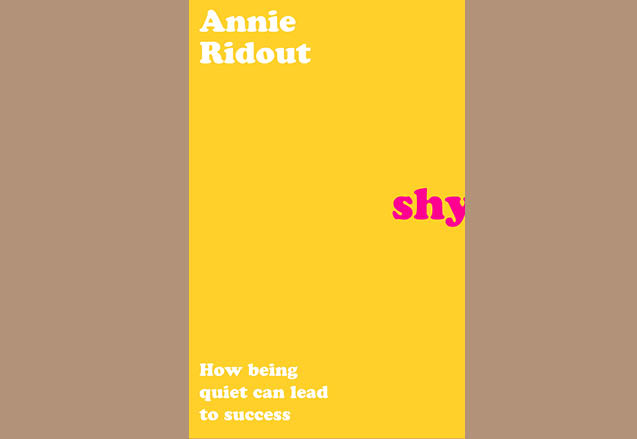When I left home for university, I felt as if I was now living as an independent adult. I had to look after myself and make big decisions. But really, it was entering the world of work that made me realise it was all down to me. No student loan, no three-year study period to focus on – just me, a plan to be a professional writer and a long future ahead of me.
After completing my degree, I moved back in with my parents and applied for every job going, before settling on interning at national newspapers and broadcasters, while working nights on the door of a nightclub.
During an internship at a TV station, the presenter invited me for lunch with him and a group of other newsreaders. We went to a basement restaurant and sat on stools around a high table. I was about 23, desperate to break into journalism, and was sitting with these intelligent, influential journalists. If I’d joined in their conversations about current affairs – I knew what they were talking about, I had opinions – I might have secured myself a paid position. But I didn’t because I was too shy.

There was also the time I was interning at a newspaper and I was writing dozens of articles each week. After a few months, I couldn’t afford to stay on unpaid. I told them I was leaving and the office manager looked a bit confused; perhaps she thought I’d continue working for free for a few years. Perhaps she felt guilty about how she’d treated me. Either way, other reporters were commenting on how much I’d contributed and said they were dismayed by me not being hired. One suggested I book a meeting with the new female editor of the newspaper. I’d had chats with her, and she seemed open and friendly. I reckon if I’d made that meeting with her, explained how much work I’d done and pitched for a job, she’d have made it happen. My mother-in-law tried to encourage me to ask for the meeting too, making suggestions for what I could say. But I didn’t do it. I felt too shy.
There were many more incidences of my shyness preventing me from succeeding with my career but, while it took me time to get to where I wanted to be – a successful freelance journalist was always the dream – there was something going on under the surface that was indeed propelling me forward. A quiet determination that made me closely observe what employers valued in their employees. I noted the importance of punctuality, hard work, innovation and politeness. These were all characteristics I’d picked up off the back of shyness (being scared to be late, fear of failure, quietly mulling over ideas, never wanting to offend).
And over the years, I developed good relationships with the people I worked for and the editors who commissioned me. In time, I was being contacted by the Guardian – rather than endlessly pitching to them – to write articles. My quiet perseverance and hard work had paid off.
These were all characteristics I’d picked up off the back of shyness
A 2016 study on ‘leading with introversion’ found some common advantages to being shy, or introverted, in the workplace (these terms are used interchangeably throughout the study). They include observing at a distance, being astute listeners (enabling them to gain critical information), and being able to put matters into perspective.
But as Louise McKee, former HR director for Barclays Bank and now an executive coach, told me, sometimes you need to be extroverted, or to fake it.
‘Being quiet about a really good idea when you’re employed to have them isn’t going to work,’ she says. ‘If you have ideas for how to improve the business, or a service – you must not be quiet.’
She says that her shyness, or introversion, gave her the ability to analyse people’s behaviours. ‘Where others rushed in and made a fool of themselves, I’d learned a lot from being in a big family, and wanting to belong, about the importance of holding back.’ While shy people and introverts tend to have very clear thoughts and views, because they’ve had time to consider them, they then need to employ extrovert behaviours to get their ideas across. ‘We’ve got to be able to say: here’s my good work, and to have that respected and accepted. Otherwise no one promotes us.’
This resonates with me; a feeling of inner quietness at odds with the need to raise my voice in order to be heard. Having sat through many a class, seminar, lecture and meeting desperate to say something but not sure if my contribution would be of any value, I came up with a technique for ensuring I contributed everything I wanted to say, without fluffing my words. I started writing notes. I’d take my notebook into job interviews, I’d have it open during classes, I would also take it with me on the stage for any panel talks I was part of – I still do.

There is always a fear that once you put your hand up, or start your sentence – and all eyes are on you – you’ll mess it up and ruin your moment in the spotlight.
A notebook became my method for ensuring this wouldn’t happen. I’ve had employers laugh at me, kindly, in interviews, and audience members do the same during talks when I’ve pulled it out to remind myself of a book or app I want to recommend. But I realised, over time, that it’s OK to be human; to be flawed. Not only am I shy, but I also have a terrible memory, so my notebook-wherever-I-go is doubly advantageous. Apparently Richard Branson is also a fan of a notebook. Being at the helm, he is taking a different stance, though, which is that to be a good leader, you must always be paying attention to what your employees are telling you.
‘As a leader, you should always be listening,’ he said. ‘Be visible, note down what you hear and you‘ll be surprised how much you learn. Successes happen from working and learning with some of the world’s most inspiring and inspired people.’
This desire to listen and learn may well come from Branson’s own admitted shyness. He is able to sit back, be quiet, listen, reflect in a way that a more confident or outgoing leader can’t. When a boss is able to respect his juniors and to make them feel heard, there is better staff retention but also less space for conflict. Being able to speak up when there’s an issue is important for a harmonious workplace. It can feel incredibly daunting to vocalise a workplace issue, even for someone confident. But for a shy person, it’s even harder.
But I realised, over time, that it’s OK to be human; to be flawed
However, in the same way that McKee said we must ensure we don’t shy away from promoting ourselves and the work we’re producing, there might also be negative work situations we find ourselves in that require a loud voice to combat.
I was once working at a tech company, as a copywriter. I had to liaise regularly with the social media manager – send him copy to approve before it was scheduled to go out. And over a period of a few weeks, he stopped responding to my emails.
So I’d work hard on the copy, send it over and then . . . nothing. I let it go the first few times, assuming he was really busy, but it might be important to note that he wasn’t my senior; we were equal within the hierarchy of the company. He then started to be negative about the copy I was sending; unnecessarily so. Picking the tiniest fault.
After a few weeks, I’d had enough. It was preventing me from doing my job properly, all the negativity and lack of response, so I went over to his desk first thing one morning and asked to have a word with him outside. He looked shocked, and scared. I explained that I was finding it frustrating that he wasn’t replying to my emails and that when we eventually did meet to talk about the copy, he never had anything positive to say. He was very apologetic, and said he hadn’t meant it.
After that, he replied to my emails and only shared criticism when necessary. As McKee said above: the quieter people analyse situations. So while the more outgoing members of staff are floating about, behaving however they like; without thinking about how others might feel, we are noticing this and ordering our thoughts.
By the time we’ve had enough, we know exactly what we’re going to say and how we’re going to say it, because we’ve been going over it time and time again in our heads. So we can then deliver an eloquent explanation about why something isn’t working, which leaves our colleagues – like that social media guy – clambering for words and excuses and explanations.
The quieter people analyse situations
In conclusion, don’t underestimate the strength of a shy person who feels undermined. In general, it can be easy for employers and co-workers to misjudge a shy person as someone who has less ambition and drive, and less to contribute. But it’s worth breaking through the quiet facade to see what’s going on inside. If you can empower a shy person to speak out, you may well elicit a rather novel idea or approach to a problem you’re trying to solve.
My shyness has made me think more, observe more, learn more, and I believe it has made me more determined to succeed. As a child, I couldn’t comfortably perform or be the loud kid, but I could channel all my energy into learning new skills. In the workplace, I’ve been able to focus on what I want and find clever ways to get it – without being the loudest or the most flamboyant. Society favours boldness and confidence, but quiet people can also get what they want.
Extract taken from Shy: How Being Quiet Can Lead to Success by Annie Ridout, published by 4th Estate














No Comments